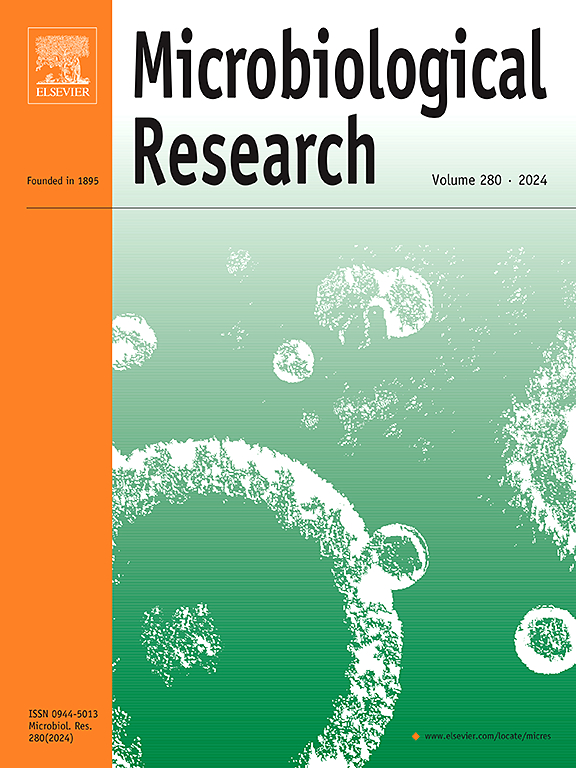Protecting plants from pathogens through arbuscular mycorrhiza: Role of fungal diversity
IF 6.1
1区 生物学
Q1 MICROBIOLOGY
引用次数: 0
Abstract
Arbuscular mycorrhizal (AM) fungi play a crucial role in protecting host plants from pathogens. AM fungal taxa show varying abilities to hinder the development of plant pathogens with various underlying mechanisms of action, and plant defense through mycorrhization should be viewed to have a continuum of several possible mechanisms. However, an additive or synergistic effect is not always achieved. This review examines the potential mechanisms by which AM fungi enhance plant tolerance and defense against pathogens, as well as the possible interactive mechanisms among AM fungal traits that may lead to facilitative and antagonistic effect on plant defense outcomes. It also provides evidence demonstrating the benefits of AM fungal consortia used so far to protect crop plants from various pathogens. It concludes by proposing some biotechnological applications aimed at unraveling the connections between AM fungal diversity and their function to enhance efficacy of plant pathogen protection.
通过丛枝菌根保护植物免受病原体侵害:真菌多样性的作用。
丛枝菌根(AM)真菌在保护寄主植物免受病原体侵害方面发挥着至关重要的作用。AM 真菌类群在阻碍植物病原体的发展方面表现出不同的能力,其基本作用机制也各不相同。然而,并不总能达到相加或协同的效果。本综述探讨了互生真菌增强植物耐受性和抵御病原体的潜在机制,以及互生真菌性状之间可能存在的相互作用机制,这些机制可能会对植物防御结果产生促进或拮抗作用。报告还提供了证据,证明迄今为止利用 AM 真菌联合体保护作物植物免受各种病原体侵害的益处。文章最后提出了一些生物技术应用,旨在揭示调控真菌多样性与其功能之间的联系,以提高植物病原体保护的功效。
本文章由计算机程序翻译,如有差异,请以英文原文为准。
求助全文
约1分钟内获得全文
求助全文
来源期刊

Microbiological research
生物-微生物学
CiteScore
10.90
自引率
6.00%
发文量
249
审稿时长
29 days
期刊介绍:
Microbiological Research is devoted to publishing reports on prokaryotic and eukaryotic microorganisms such as yeasts, fungi, bacteria, archaea, and protozoa. Research on interactions between pathogenic microorganisms and their environment or hosts are also covered.
 求助内容:
求助内容: 应助结果提醒方式:
应助结果提醒方式:


